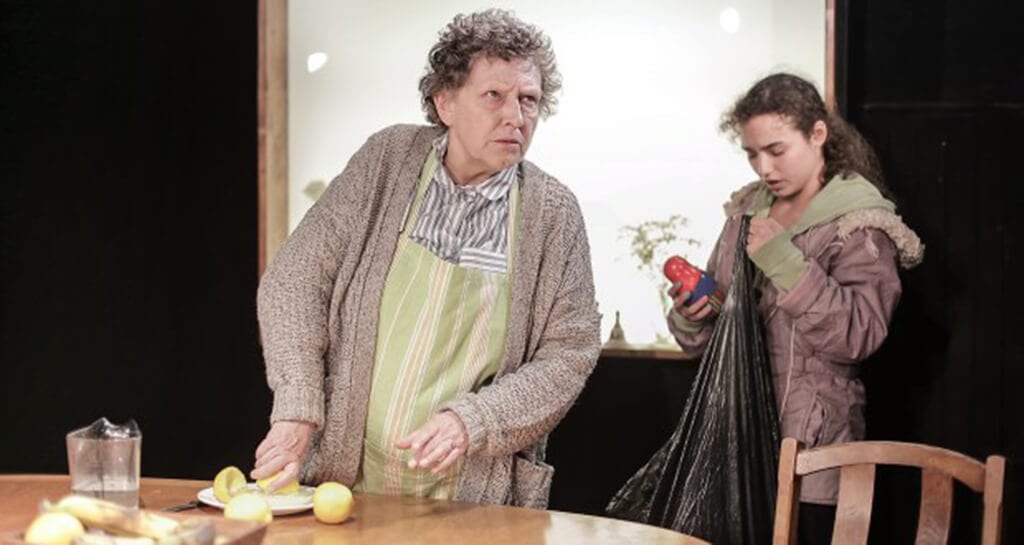Russian Dolls, winner of the Adrian Pagan award in 2015, is a tale of affection and female empowerment. Hilda, Stephanie Fayerman, a blind seventy-something pensioner, has her comfortable life thrown into complete disarray when gobby youth offender Camelia, Mollie Lambert, storms in. With a history of drugs, sexual abuse and failed foster care hot on her heels, Camelia discovers in Hilda the mother-figure and role model she so desperately needs.
Lost, without purpose and determined to impress ‘the crew’, Camelia poses as a substitute care worker and robs Hilda. The results are unfulfilling and awaken a searing sense of guilt in the young thief; Camelia comes back like a naughty puppy with it’s tail between it’s legs, having gained no respect from the bad guys nor money from the local pawnbrokers. Hilda, taking pity, offers her home to Camelia in return for company and help around the house. What follows is the beginning of a fierce but beautiful intergenerational bond. Before long, however, Camellia’s past eventually catches up with her and a few tough decisions and shocking surprises take their toll on the friendship.
Despite her painfully offensive tongue, it’s hard not to fall in love with Camelia. For all the aggressive spats and spitting remarks, Lambert still manages to achieve a wide-eyed innocence. Hilda is just as fiery when given enough fuel. The performances are as energetic as they are effortless. The two bounce off one another’s grit, humour and search for self-worth.
The duologue is overflowing with touching anecdotes that slowly piece together the puzzle behind Hilda’s life and tightly knit Camelia into character, ever haplessly breaking at the seams. Every time writer Kate Lock (Tuesday Child, BBC2) offers a glimmer of hope for Camelia’s future, the chance that she might escape the estate and the toils that come with it, we are frustratingly jerked back to square one again.
Aside from the 10/10 performances, the play ends rather abruptly and leaves you feeling unsatisfied. Disappointingly, the sudden denouement doesn’t really give you any closure and leaves the play a little half-baked.

